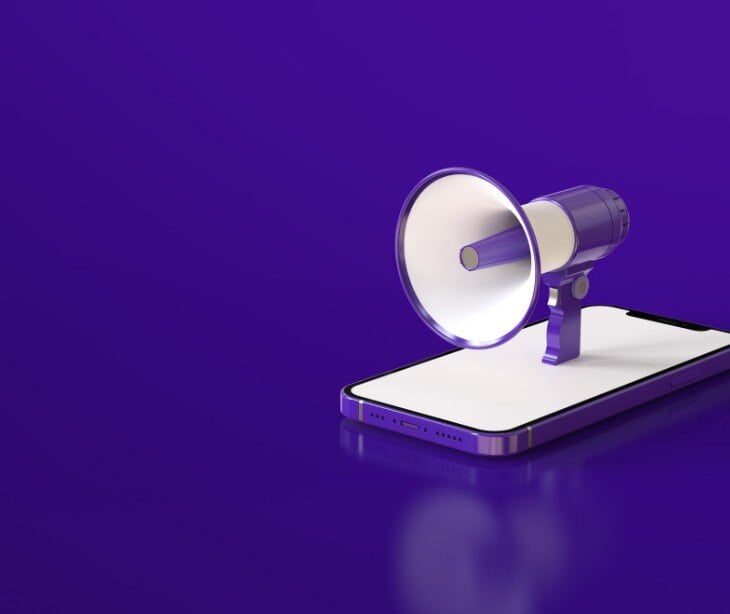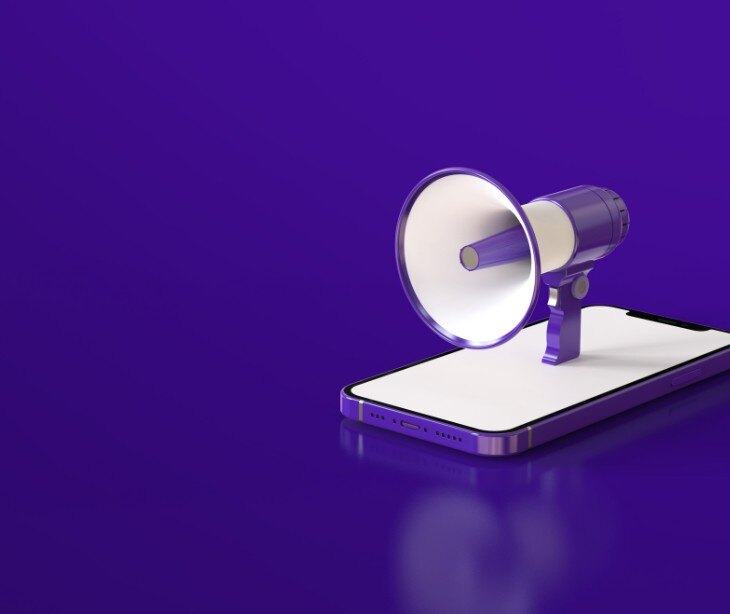
The Health Insurance Portability and Accountability Act (HIPAA) privacy rule governs how protected health information (PHI) is used for marketing. Established by the U.S. Department of Health and Human Services (HHS), these regulations help individuals have more control over how their healthcare data is shared, particularly in marketing and promotional activities.
HIPAA defines marketing under specific guidelines and provides some exceptions, setting a clear framework to ensure healthcare providers, health plans, and related entities handle PHI responsibly and transparently.
Defining "marketing" under HIPAA
Under the HIPAA privacy rule, marketing is any communication encouraging the recipient to purchase or use a product or service. The definition covers various promotional efforts, such as:
- A hospital promoting an unaffiliated cardiac facility and offering baseline EKGs for $39.
- A health insurer advertising a home and casualty insurance product under the same umbrella.
HIPAA’s marketing definition also applies when a covered entity shares PHI with another organization in exchange for payment, allowing the other organization to market its product or service. Selling patient lists or enrollee information to third parties for marketing purposes is prohibited unless each individual gives written permission.
Read also: The detailed guide to HIPAA compliant email marketing
Exceptions to the marketing definition
While HIPAA requires individuals' authorization before their PHI can be used for marketing, some exceptions allow communications without explicit consent, including:
- Communications about a covered entity’s own services: Healthcare providers can inform patients about their own health-related services, such as upgrades to a health plan or value-added benefits for enrollees.
- Treatment-related communications: Refill reminders and referrals to specialists fall under this category and are not considered marketing.
- Care coordination or case management: Sharing PHI for coordinating a patient's care is allowed without prior authorization.
Even with these exceptions, communication from healthcare providers and business associates must comply with HIPAA regulations.
When does marketing require authorization
Most communication that is considered marketing requires written consent. Authorization must disclose whether the marketing results in payment to the covered entity from a third party.
There are two exceptions where authorization is not required:
- Face-to-face marketing: Covered entities can engage in direct, face-to-face marketing without needing prior consent.
- Nominal promotional gifts: Healthcare providers can offer small gifts, like a care package for new mothers, without needing permission.
Read more: Patient consent: What you need to know
What this means for healthcare organizations
The marketing rules in HIPAA have far-reaching implications for healthcare providers, including:
- Compliance: Organizations must ensure that their marketing practices align with HIPAA’s definitions and exceptions. Failing to do so can lead to penalties and loss of trust.
- Transparency fosters trust: Requiring authorization for most marketing activities empowers patients, fostering a greater sense of control over their health data.
- Limits on innovation: These regulations may restrict some marketing innovations, but they encourage healthcare organizations to find creative ways to engage patients while staying compliant.
- Business associate agreements: Third-party partners involved in marketing must sign agreements that protect PHI, reinforcing privacy throughout the process.
What it means for patients
Patients benefit from HIPAA's marketing provisions in several ways:
- Enhanced privacy: Patients have greater control over how their healthcare data is used in marketing, reducing the risk of unwanted promotions.
- Increased transparency: With clear rules in place, patients can make informed decisions about the use of their PHI.
- Less unsolicited marketing: HIPAA limits unsolicited promotional messages, helping reduce confusion or miscommunication.
- Strengthened trust: By prioritizing patient privacy, healthcare providers can build stronger relationships with their patients.
In the news
In 2017, the medical center Allergy Associates of Hartford was fined $125,000 by the U.S. Department of Health and Human Services (HHS) for a HIPAA violation. The violation occurred when a physician improperly disclosed a patient’s protected health information (PHI) to a local news reporter. The patient had filed a complaint with a local television station about the clinic’s services, and in response, the doctor provided the reporter with the patient’s PHI without the patient’s authorization.
This case demonstrates a HIPAA violation because the medical center shared PHI for a purpose that did not fall under any of HIPAA's permissible uses, such as treatment or healthcare operations, and it failed to obtain the patient's authorization for the disclosure.
This violation serves as an example of how improper handling of PHI for non-compliant purposes, even in public relations or marketing situations, can lead to significant penalties.
How Paubox simplifies HIPAA compliant marketing
Paubox offers a cutting-edge HIPAA compliant email marketing platform, designed specifically for healthcare organizations to securely engage with patients. Unlike other marketing platforms, Paubox eliminates the need for cumbersome portals and extra steps, allowing patients to receive encrypted, personalized emails directly in their inboxes. By integrating PHI into email marketing campaigns, Paubox ensures healthcare providers can send appointment reminders, health updates, or promotional messages without compromising compliance.
The platform’s intuitive drag-and-drop builder and customizable templates make it easy for marketers to design engaging campaigns, even without technical expertise. Paubox also provides real-time analytics, so organizations can track open rates, click-throughs, and overall engagement, ensuring the effectiveness of each campaign. By enhancing email deliverability, Paubox ensures that messages reach their audience’s inbox rather than being filtered as spam. The platform's ability to segment audiences and automate workflows makes it a powerful tool for personalized outreach, ultimately boosting patient engagement and increasing revenue opportunities for healthcare providers.
In addition, Paubox is HITRUST CSF certified, offering the highest level of security and compliance in the healthcare industry. This allows healthcare marketers to maintain patient trust while leveraging email marketing to foster stronger relationships and better health outcomes.
Related: HIPAA compliant email marketing: What you need to know
FAQs
What is HIPAA compliant marketing?
HIPAA compliant marketing refers to the use of protected health information (PHI) in marketing communications while adhering to HIPAA regulations. It ensures that healthcare organizations can market to patients securely by following privacy rules and using encrypted communications.
Can healthcare providers send promotional emails without violating HIPAA?
Yes, healthcare providers can send promotional emails if they use a HIPAA compliant email marketing platform that encrypts PHI and complies with privacy regulations.
What features should a HIPAA compliant email marketing platform include?
A HIPAA compliant platform should offer encrypted communications, personalized messaging with PHI, real-time analytics, audience segmentation, and provide a business associate agreement (BAA) to ensure secure handling of patient data.
Subscribe to Paubox Weekly
Every Friday we'll bring you the most important news from Paubox. Our aim is to make you smarter, faster.



